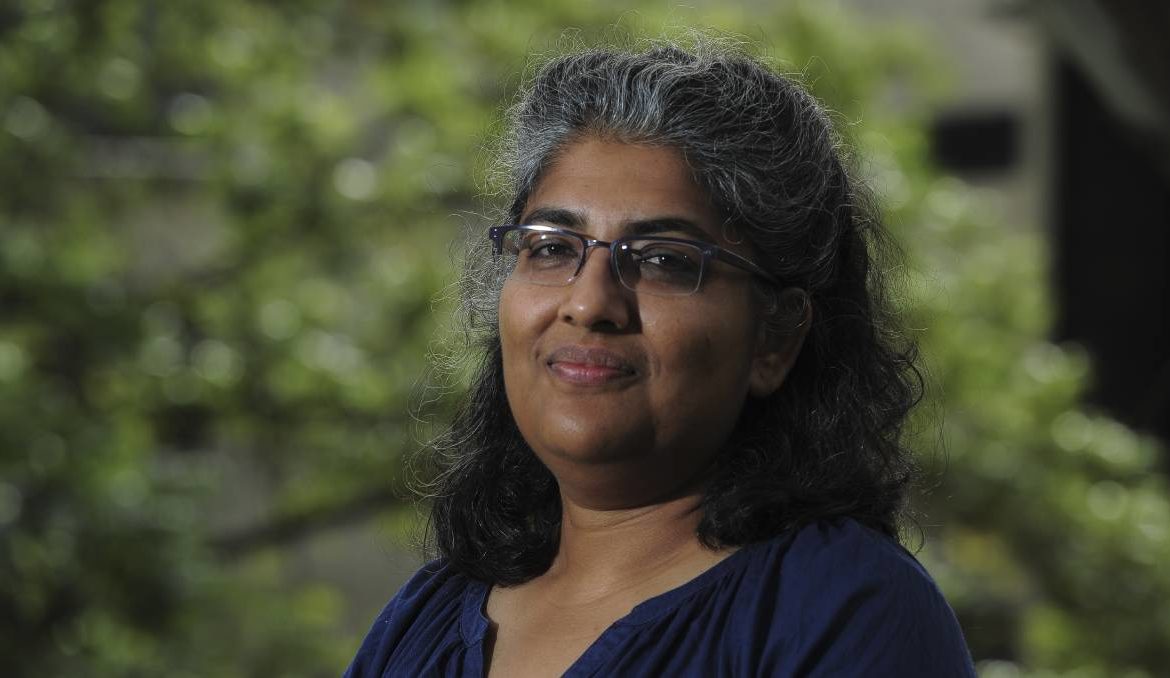news, latest-news, Kamalini Lokuge, Australian National University, ANU, COVID-19, coronavirus, Emily Banks, Fair Work
Top-tier health experts have warned the government’s industrial relations reforms pose a threat to public health measures and would weaken the country’s ability to respond to future pandemics. Among the experts is Australian National University Associate Professor Kamalini Lokuge, who specialises in emergency public health responses and is widely credited with helping to stop Ebola. Professor Lokuge, in a co-authored submission to the Senate inquiry into the government’s omnibus bill to change the Fair Work Act, said the proposed changes in the act posed “an immediate threat to public health”. She and other authors pointed to “even further casualisation, lower pay and insecure conditions for these workers” as a reason for this. The experts said the proposed legislation encouraged employers to “categorise an employee to be a casual irrespective of actual work patterns”. The submission said that employers’ obligations to offer staff permanent work was “minimised” because the legislation didn’t clearly specify who should and shouldn’t be deemed casual. It said the proposed legislation also encouraged non-union enterprise agreements, which would further disadvantage workers who were already “the most insecure and low paid in our workforce”. READ MORE: Fair Work president pans industrial change Professor Lokuge said: “The proposed changes will undermine our world-class response to COVID by increasing casual employment [and] insecure working conditions. “They will also lead to inadequate protections and lack of access to paid sick leave. “Under these conditions, highly at-risk workers will not be able to follow necessary health recommendations such as isolating when unwell or quarantining while awaiting results. “Unless addressed, the public health risks of insecure work will continue to pose a major public health threat into the foreseeable future while COVID-19 remains a risk.” In the experts’ submission, they urged the government to replace provisions in the act that promoted insecure work with measures that instead “[strengthened] the security and protections provided to employees”. The experts suggested measures like paid “flu leave days”, which – in conjunction with paid service leave – had been shown to be capable of reducing workplace infections by at least 25 per cent. “Australia’s response to the COVID-19 pandemic has been remarkable. But we can’t afford to undo it now,” Professor Lokuge said. “The world is waiting for a vaccine to take effect. But, insecure work makes it harder for essential workers to get vaccinated for COVID-19; so we need to especially look out for them.” The federal government will consider submissions about the proposed act before it decides whether or not to implement the changes. Industrial relations is set to be the focus of heated political battles this year, with labor signalling it will not support the government’s bill and flagging moves to support more secure jobs as a major plank of the party’s election pitch. – With Sally Whyte
/images/transform/v1/crop/frm/5W4iRw6LNH53uM23K5syYZ/80b37f12-172e-4e30-96fb-b7ce9fc03884.jpg/r0_183_4218_2566_w1200_h678_fmax.jpg
Top-tier health experts have warned the government’s industrial relations reforms pose a threat to public health measures and would weaken the country’s ability to respond to future pandemics.
Among the experts is Australian National University Associate Professor Kamalini Lokuge, who specialises in emergency public health responses and is widely credited with helping to stop Ebola.
Professor Lokuge, in a co-authored submission to the Senate inquiry into the government’s omnibus bill to change the Fair Work Act, said the proposed changes in the act posed “an immediate threat to public health”.
She and other authors pointed to “even further casualisation, lower pay and insecure conditions for these workers” as a reason for this.
The experts said the proposed legislation encouraged employers to “categorise an employee to be a casual irrespective of actual work patterns”.
The submission said that employers’ obligations to offer staff permanent work was “minimised” because the legislation didn’t clearly specify who should and shouldn’t be deemed casual.
It said the proposed legislation also encouraged non-union enterprise agreements, which would further disadvantage workers who were already “the most insecure and low paid in our workforce”.
Professor Lokuge said: “The proposed changes will undermine our world-class response to COVID by increasing casual employment [and] insecure working conditions.
“They will also lead to inadequate protections and lack of access to paid sick leave.
“Under these conditions, highly at-risk workers will not be able to follow necessary health recommendations such as isolating when unwell or quarantining while awaiting results.
“Unless addressed, the public health risks of insecure work will continue to pose a major public health threat into the foreseeable future while COVID-19 remains a risk.”
In the experts’ submission, they urged the government to replace provisions in the act that promoted insecure work with measures that instead “[strengthened] the security and protections provided to employees”.
The experts suggested measures like paid “flu leave days”, which – in conjunction with paid service leave – had been shown to be capable of reducing workplace infections by at least 25 per cent.
“Australia’s response to the COVID-19 pandemic has been remarkable. But we can’t afford to undo it now,” Professor Lokuge said.
“The world is waiting for a vaccine to take effect. But, insecure work makes it harder for essential workers to get vaccinated for COVID-19; so we need to especially look out for them.”
The federal government will consider submissions about the proposed act before it decides whether or not to implement the changes.
Industrial relations is set to be the focus of heated political battles this year, with labor signalling it will not support the government’s bill and flagging moves to support more secure jobs as a major plank of the party’s election pitch.







